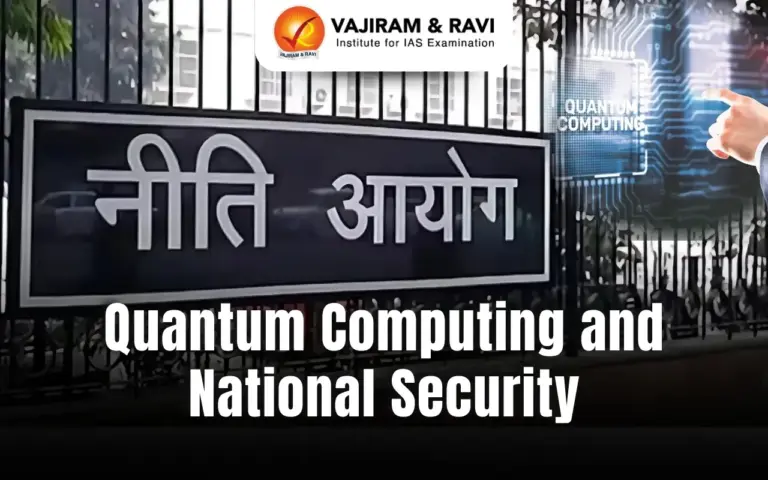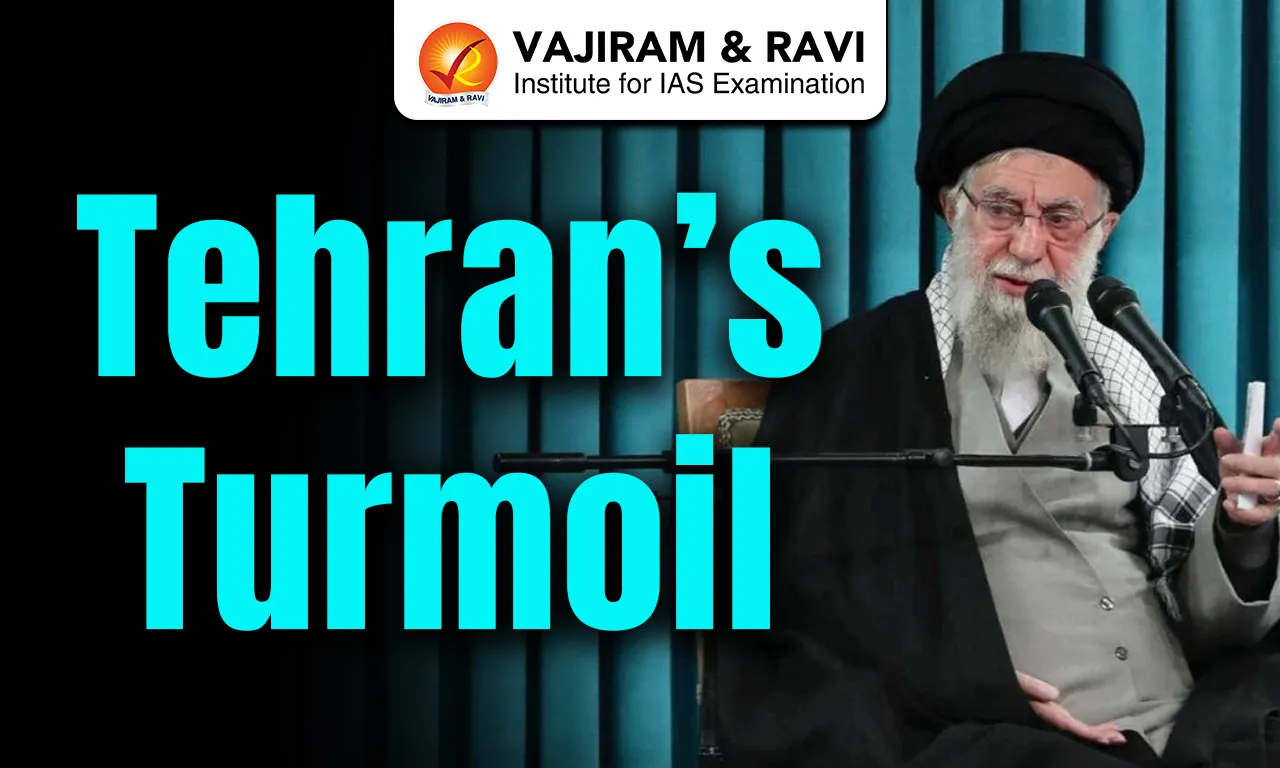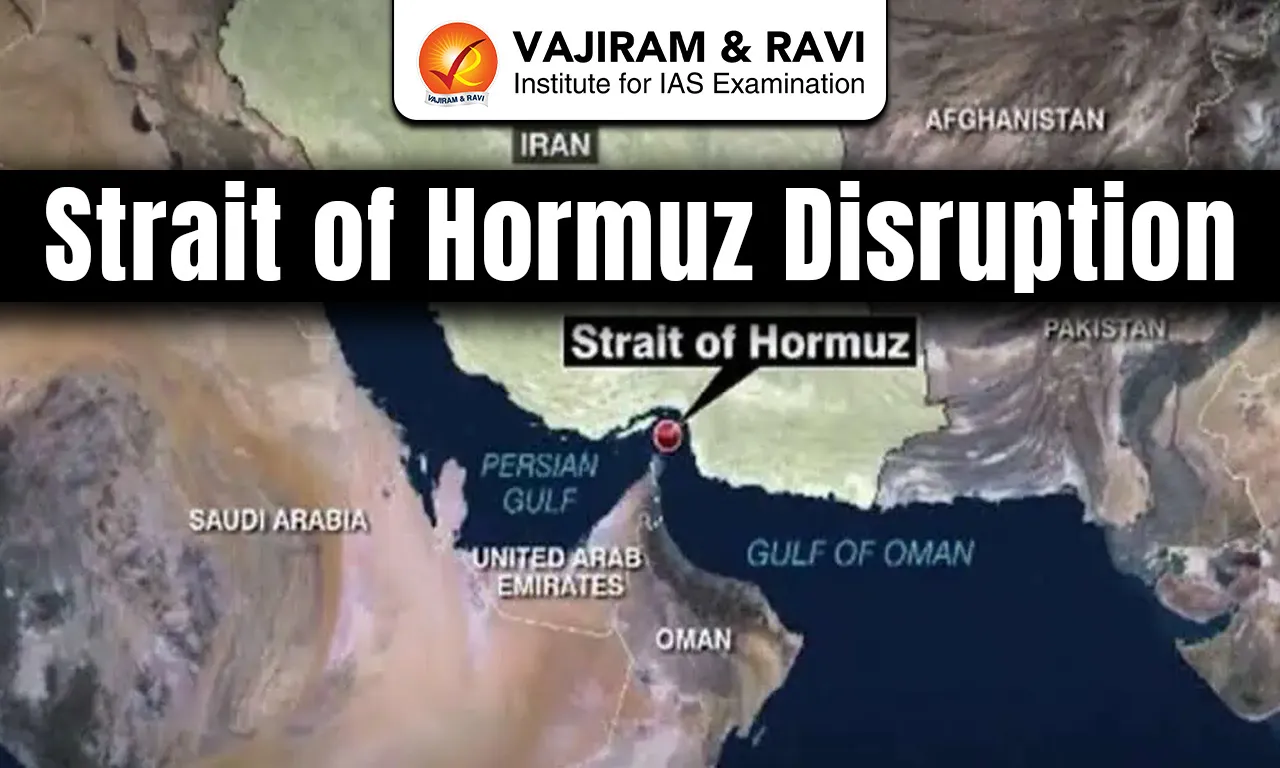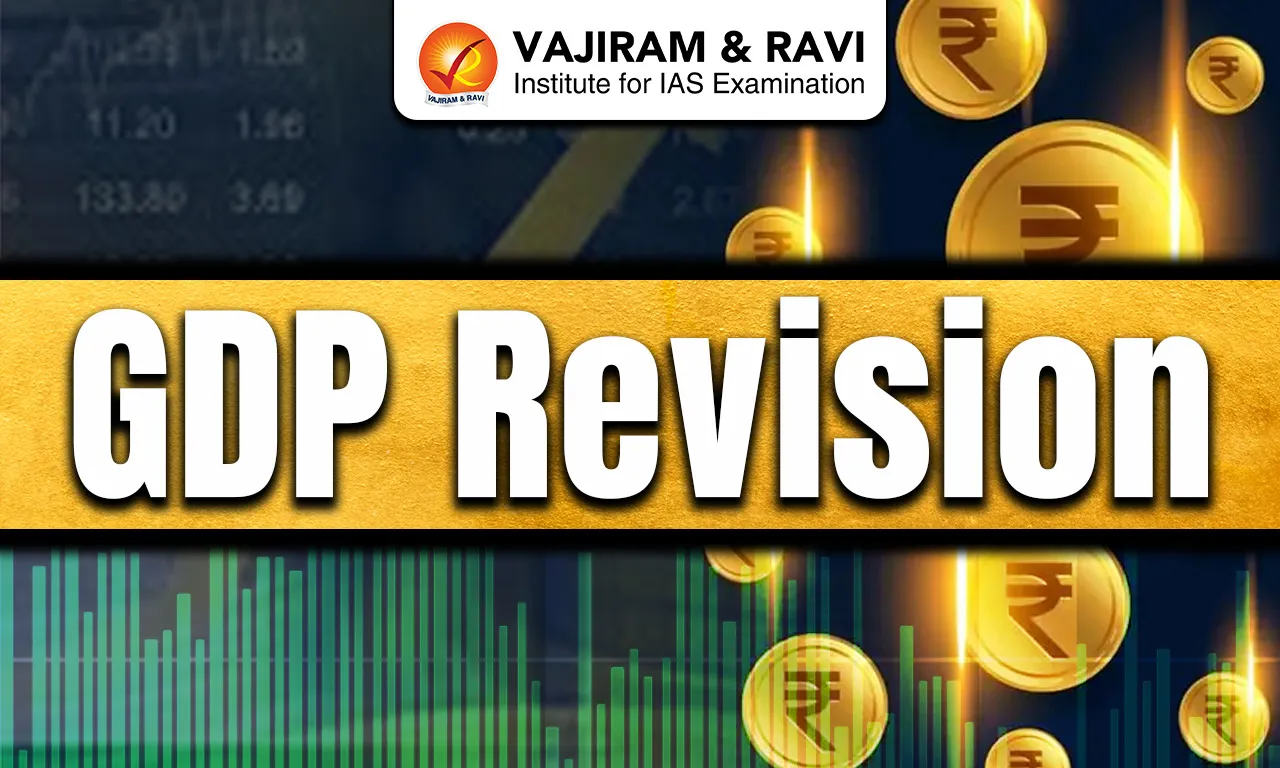What’s in Today’s Article?
- Quantum Computing and National Security Latest News
- NITI Aayog’s Report on Quantum Computing and National Security\
- Key Takeaways form NITI Aayog’s Report on Quantum Computing
- Conclusion
- Quantum Computing and National Security FAQs
Quantum Computing and National Security Latest News
- Policy think tank NITI Aayog has released a comprehensive paper addressing the national security implications of quantum computing.
NITI Aayog’s Report on Quantum Computing and National Security
- The NITI Frontier Tech Hub (NITI-FTH), in collaboration with the Data Security Council of India, has released a strategic paper on Quantum Computing.
- The paper highlights the rapid advancements in Quantum Computing, its national security implications, and the necessary steps for India to stay competitive in this emerging domain.
- The paper’s insights will serve as a foundation for India’s strategic preparedness and policy formulation in the evolving quantum landscape.
Key Takeaways form NITI Aayog’s Report on Quantum Computing
- Strategic Importance of Quantum Computing
- NITI Aayog’s Frontier Tech Hub warns that countries with quantum capabilities will gain an “unprecedented strategic edge,” potentially jeopardizing national security and economic competitiveness.
- The report underscores the urgency for India to assess vulnerabilities, adopt post-quantum cryptography (PQC), and establish bilateral partnerships for technology access.
- Cybersecurity and Military Implications
- Quantum computers can break modern encryption, making online banking, secure communications, and internet security obsolete.
- Additionally, quantum technology can destabilize financial markets and revolutionize military capabilities, giving a strategic advantage to nations that develop it first.
- Global Quantum Investments
- Governments worldwide have pledged over $40 billion in quantum development:
- China leads with $15 billion
- United States has invested $5 billion
- India has allocated $750 million through the National Quantum Mission (NQM) (launched in 2023)
- Despite lower public spending, report highlighted India’s strength in frugal innovation, citing its cost-effective space missions as proof of its ability to develop economical quantum solutions.
- Governments worldwide have pledged over $40 billion in quantum development:
- Growth in Quantum Hardware and Startups
- Indian startups and companies are focusing on quantum-related components such as:
- Ultra-high purity materials
- Cryogenic systems
- Specialized lasers and control electronics
- While over 170 professors across Indian institutions are engaged in quantum research, historically, India has emphasized fundamental science over commercialization.
- However, a startup ecosystem is emerging, particularly in quantum software and cryptography.
- Indian startups and companies are focusing on quantum-related components such as:
- Increasing Export Controls on Quantum Technologies
- The report highlights growing export restrictions on key quantum components like:
- Arbitrary Waveform Generators (AWGs)
- Digital-to-Analog Converters (DACs)
- Microwave components
- Cryogenic dilution refrigerators
- These restrictions may limit India’s access to critical quantum hardware, necessitating domestic development efforts.
- The report highlights growing export restrictions on key quantum components like:
- Risk of Strategic Blind Spots
- India faces the risk of technological surprises if it fails to keep pace with quantum advancements.
- Nations leading in quantum computing will have a significant intelligence and economic advantage, making it crucial for India to act proactively.
- Recommendations for India
- Develop a post-quantum cryptography (PQC) transition plan to secure sensitive data.
- Strengthen domestic quantum hardware manufacturing to reduce reliance on imports.
- Encourage public-private partnerships to boost investment and commercialization.
- Expand funding for quantum startups and research to accelerate innovation.
Conclusion
Quantum computing is a game-changing technology with far-reaching implications for national security, cybersecurity, and global power dynamics.
While India has made early moves with National Quantum Mission (NQM), the report stresses the need for greater investment, policy support, and industry participation to ensure the country remains competitive in the quantum race.
Quantum Computing and National Security FAQs
Q1. What are the national security risks of quantum computing?
Ans. Quantum computing threatens encryption, cybersecurity, and financial stability while giving strategic advantages to nations with advanced quantum capabilities.
Q2. How does NITI Aayog’s report address cybersecurity concerns?
Ans. The report emphasizes adopting post-quantum cryptography (PQC) to counter quantum threats and secure India’s critical data infrastructure.
Q3. What is India’s investment in quantum computing?
Ans. India has allocated $750 million through the National Quantum Mission (NQM) to develop quantum technologies and stay competitive.
Q4. Why is quantum computing crucial for military applications?
Ans. Quantum technology can enhance secure communications, intelligence gathering, and cyberwarfare, giving early adopters a strategic edge in defense.
Q5. What challenges does India face in quantum computing?
Ans. India struggles with limited quantum hardware access due to export restrictions and a historical focus on fundamental research over commercialization.
Last updated on March, 2026
→ UPSC Notification 2026 is now out on the official website at upsconline.nic.in.
→ UPSC IFoS Notification 2026 is now out on the official website at upsconline.nic.in.
→ UPSC Calendar 2026 has been released.
→ UPSC Final Result 2025 is expected to be released soon.
→ Check out the latest UPSC Syllabus 2026 here.
→ Join Vajiram & Ravi’s Interview Guidance Programme for expert help to crack your final UPSC stage.
→ UPSC Mains Result 2025 is now out.
→ UPSC Prelims 2026 will be conducted on 24th May, 2026 & UPSC Mains 2026 will be conducted on 21st August 2026.
→ The UPSC Selection Process is of 3 stages-Prelims, Mains and Interview.
→ Prepare effectively with Vajiram & Ravi’s UPSC Prelims Test Series 2026 featuring full-length mock tests, detailed solutions, and performance analysis.
→ Enroll in Vajiram & Ravi’s UPSC Mains Test Series 2026 for structured answer writing practice, expert evaluation, and exam-oriented feedback.
→ Join Vajiram & Ravi’s Best UPSC Mentorship Program for personalized guidance, strategy planning, and one-to-one support from experienced mentors.
→ Check UPSC Marksheet 2024 Here.
→ UPSC Toppers List 2024 is released now. Shakti Dubey is UPSC AIR 1 2024 Topper.
→ Also check Best UPSC Coaching in India


















